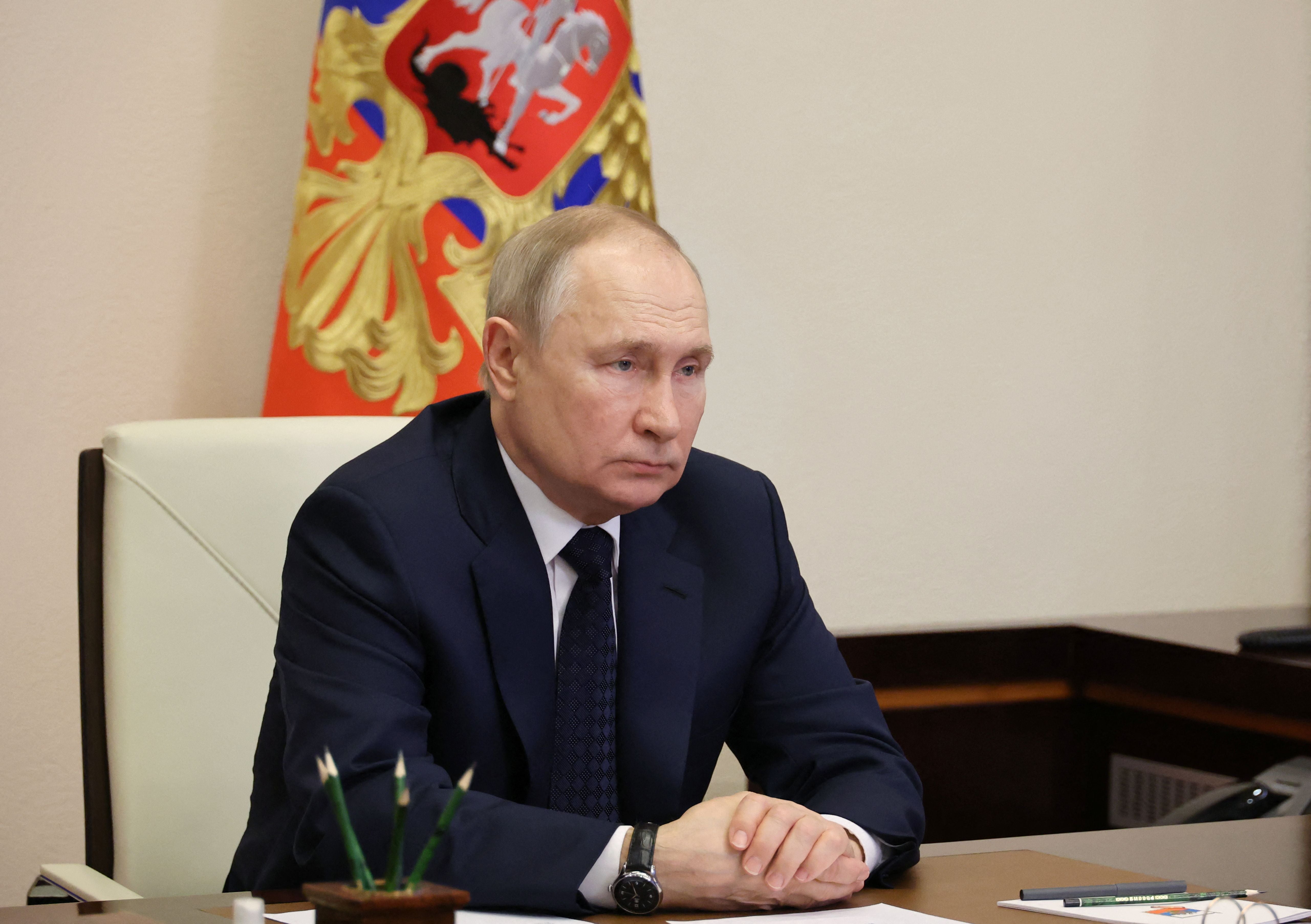Bulgaria proves that it takes a global village to fend off a bully
The story is one that could provide a template for other countries, writes Borzou Daragahi


Bulgaria was in trouble. The country was about to be crushed by a punishing Russian cutoff in gas taken in response to Sofia’s decision to abide by Western sanctions on Moscow. But over the course of the following weeks, an extraordinary coming together of world powers helped the country survive.
The narrative, chronicled in a report last week in the German daily Frankfurter Allgemeiner Zeitung by journalist Michael Martens, provides a blueprint for how the world community can come together to combat bullying by Russia.
When Bulgaria decided to wholeheartedly back its allies in Nato and fellow European Union members in opposing Russia’s invasion of Ukraine, Russian president Vladimir Putin reacted with fury. Bulgaria was the one EU and Nato member in which the Kremlin had built up genuine soft power. Russia and its operatives had seized control of segments of the country’s political establishment, as well as key segments of real estate, media, finance, telecommunications and the all-important energy sector. According to several studies, it has been the European nation most tightly in the Kremlin’s hands.
“It was one small market that Putin was trying to control – really an important market strategically and politically,” former US diplomat Matthew Bryza, now a board member of Balkan energy firm Overgas, said in an interview. “Russian political and economic and corrupt ties permeate throughout all the Bulgarian networks.”
On 27 April, two months after Russia invaded Ukraine, energy behemoth Gazprom, long a tool in the Kremlin’s geopolitical arsenal, stopped all gas shipments to Bulgaria as well as Poland, in an attempt to flex its muscles and punish the countries for abiding by EU sanctions and refusing to pay in roubles.
Bulgaria has long been a kind of outlier in Europe, with shaky politics and an even more wobbly economy. At that time it was being overseen by Harvard graduates Kiril Petkov and Asen Vasilev, co-leaders of a newly formed party that had narrowly won elections in 2021. Washington had long urged Sofia to reduce its dependence on Russian energy following Gazprom cutoffs in previous years. But it was to little avail.
“Since the early 2000s we’ve been urging Bulgaria to diversify away from Russian gas,” said Bryza. “Because of the corruption of the system, they never did it.”
By the time Petkov took office in late 2021, the country was dependent on Russia for 95 per cent of its gas, according to the FAZ report. “Industry would have stood still overnight, heating would also have become difficult,” he was quoted as saying. “We literally only had gas for a few days.”
He rushed to Washington, meeting with vice president Kamala Harris and secretary of state Antony Blinken, and managed to negotiate two shipments of LNG at prices that were even below Gazprom’s rates.
Now the challenge became how to get the gas into Bulgaria’s pipeline networks. Petkov credits Turkish president Recep Tayyip Erdogan for supplying Bulgaria with two suitable ports. Bulgaria also approached gas-rich Azerbaijan, which agreed to supply the country with a third of its annual needs in a deal brokered by European Council president Charles Michel along with energy giant British Petroleum.
In October, a long-delayed project to connect Bulgaria’s gas grid to neighbouring Greece came online, further reducing Sofia’s potential dependence on Russia, and allowing gas from anywhere in the world to flow into Balkan country of seven million. Petkov says it was interference by Russia that had delayed the project for more than 12 years in the first place.
While energy prices have gone up in Bulgaria, the country remains solvent, and the Gazprom cutoff has encouraged the country to diversify its energy supply chains. Late last year, Bulgaria cut a deal with US firm Westinghouse and French company Framatome to provide fuel for its Soviet-era nuclear power plant in Kozloduy, which provides a third of its energy supplies.
Petkov’s government collapsed over the summer, and former longtime prime minister Boyko Borisov, who dominated the country for more than a decade, again appears poised for power. The country’s president, Rumen Radev, known as sympathetic to the Kremlin, cancelled some of the shipments of gas. Borisov is a wily operator who has sought to balance Kremlin and western demands. But observers say he would not be able to reverse Bulgaria’s ending dependence on Russian gas, and may not even want to.
The White House appears to have played a key role in assembling the coalition of democracies, autocracies and business people to wean Bulgaria off Russian energy, and the story is one that could provide a template for other countries. It takes a global village to fend off a bully.
“The US government encouraged this to happen,” said Bryza. “These kinds of deals are not easy to put together.” On the other hand, notes Bryza, getting gas to Bulgaria was less a humanitarian effort than a major business deal. Bulgaria had cash to spend. Suppliers had gas to sell.
“It’s prosaic – suppliers and buyers,” he said. “It’s business. There was a simple deal to be done.”






Join our commenting forum
Join thought-provoking conversations, follow other Independent readers and see their replies
Comments